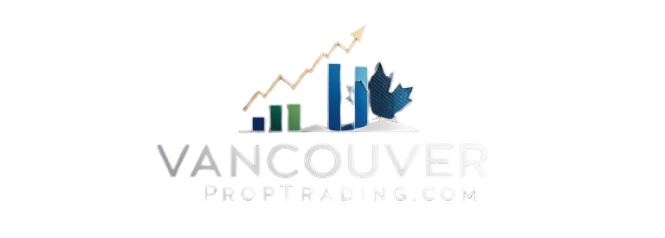
Understanding Proprietary Trading and Licensing Requirements in Canada
Proprietary trading (prop trading) is an appealing career path for traders who want to trade with firm capital rather than their own. It allows traders to take advantage of the firm’s resources, leverage, and risk management systems. However, many aspiring traders wonder: **Do you need a license to be a proprietary trader in Canada?
The answer depends on several factors, including the firm you trade with, the asset classes you trade, and whether you handle client funds.
In this article, we’ll break down the licensing requirements for prop traders in Canada, including how regulations impact traders at different firms and what you need to consider before joining a proprietary trading firm.
The Role of Regulation in Prop Trading
Who Regulates Proprietary Trading in Canada?
In Canada, financial markets and trading activities are overseen by:
-
Investment Industry Regulatory Organization of Canada (IIROC) – Governs securities and derivatives trading.
-
Provincial Securities Commissions (e.g., Ontario Securities Commission, British Columbia Securities Commission) – Oversee compliance with securities laws.
-
Canadian Securities Administrators (CSA) – Coordinates regulation across provinces.
Proprietary trading firms must adhere to these regulations, but the licensing requirements vary based on whether traders handle client funds, trade firm capital, or operate within a structured employment framework.
Do Proprietary Traders Need a License in Canada?
1. Trading Firm Capital (No License Required)
If you are trading only firm capital and not soliciting outside investors, you typically do not need a license. Many proprietary trading firms, including those offering remote trading opportunities, do not require traders to be registered with a regulatory body as long as they:
-
Trade exclusively with the firm’s funds.
-
Do not provide investment advice to clients.
-
Operate under a structured contract with the firm.
Examples of firms that follow this model:
-
Maverick Trading – Traders use firm capital after completing training and risk assessment.
-
FTMO – Traders pass an evaluation challenge and trade under a simulated funding model.
-
TopStep – Provides traders access to futures trading capital after a structured evaluation.
2. Trading Client Funds (License Required)
If a trader manages external client money, provides investment advice, or executes trades on behalf of others, they must be licensed under IIROC or their provincial securities commission.
To legally manage external funds in Canada, a trader may need to:
-
Obtain a Canadian Securities Course (CSC) certification.
-
Register as a Portfolio Manager or Investment Advisor.
-
Work under a licensed firm that allows client fund management.
Example of a firm requiring registration:
-
T3 Trading Group – May require traders to be registered and licensed due to its structure.
3. Trading Equities vs. Forex, Futures, and Crypto
-
Equities & Securities: Some firms require licensing for equity traders, especially if they trade large volumes or use direct market access.
-
Forex & Futures: Many proprietary trading firms do not require licensing since traders do not interact with clients.
-
Crypto: Regulation is evolving, but most prop firms trading crypto operate under firm-specific risk parameters rather than government licensing.
How to Choose the Right Proprietary Trading Firm
Since licensing requirements vary, it’s essential to choose a firm that aligns with your goals. Here’s how different models compare:
| Firm Type | Pros | Cons |
| Evaluation-Based Firms (FTMO, TopStep) | ✅ No licensing required ✅ Remote trading opportunities ✅ No capital contribution needed |
❌ Must pass an evaluation process ❌ Often strict risk management rules |
| Structured Proprietary Firms (Maverick Trading, SMB Capital) | ✅ No licensing required ✅ Access to firm capital and training ✅ Career progression and mentorship |
❌ Requires initial commitment to training and risk evaluation ❌ More selective application process |
| Licensed Proprietary Firms (T3 Trading Group, SMB Capital for Equities) | ✅ Provides regulatory protection ✅ Professional trading environment ✅ Potential for career advancement in institutional trading |
❌ Licensing and registration process required ❌ May require capital contribution or deposit |
Choosing between these models depends on whether you prefer immediate access to capital, structured training, or a long-term career with regulatory backing.
Steps to Becoming a Licensed Proprietary Trader (If Required)
If you plan to trade at a firm that requires licensing, here’s the typical process:
1. Complete Required Education
-
Enroll in the Canadian Securities Course (CSC) or other required certifications.
-
Learn about securities regulations, risk management, and compliance.
2. Register with IIROC or Provincial Securities Commission
-
Submit an application through the regulatory body relevant to your province.
-
Complete background checks and approval processes.
3. Join a Licensed Proprietary Trading Firm
-
Apply to firms that require licensing and offer career paths in institutional trading.
-
Complete firm-specific training and onboarding.
Do You Need a License to Be a Prop Trader in Canada?
The need for a trading license depends entirely on how you plan to trade:
-
No license required if you are trading with firm capital only (Maverick Trading, FTMO, TopStep).
-
License required if you trade client funds, offer investment advice, or work at a firm requiring registration (T3 Trading Group, some equity-based firms).
For many traders, choosing a non-licensed route through firms offering capital access without registration is the easiest way to get started. However, if you want to build a career in institutional trading, pursuing a license may open more opportunities.
Regardless of the path you choose, understanding the regulatory landscape will help you make an informed decision and navigate the world of proprietary trading in Canada with confidence.
